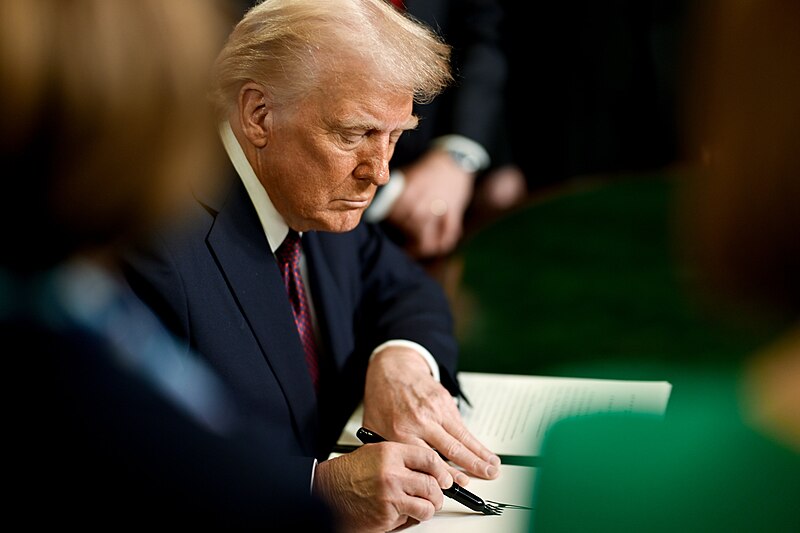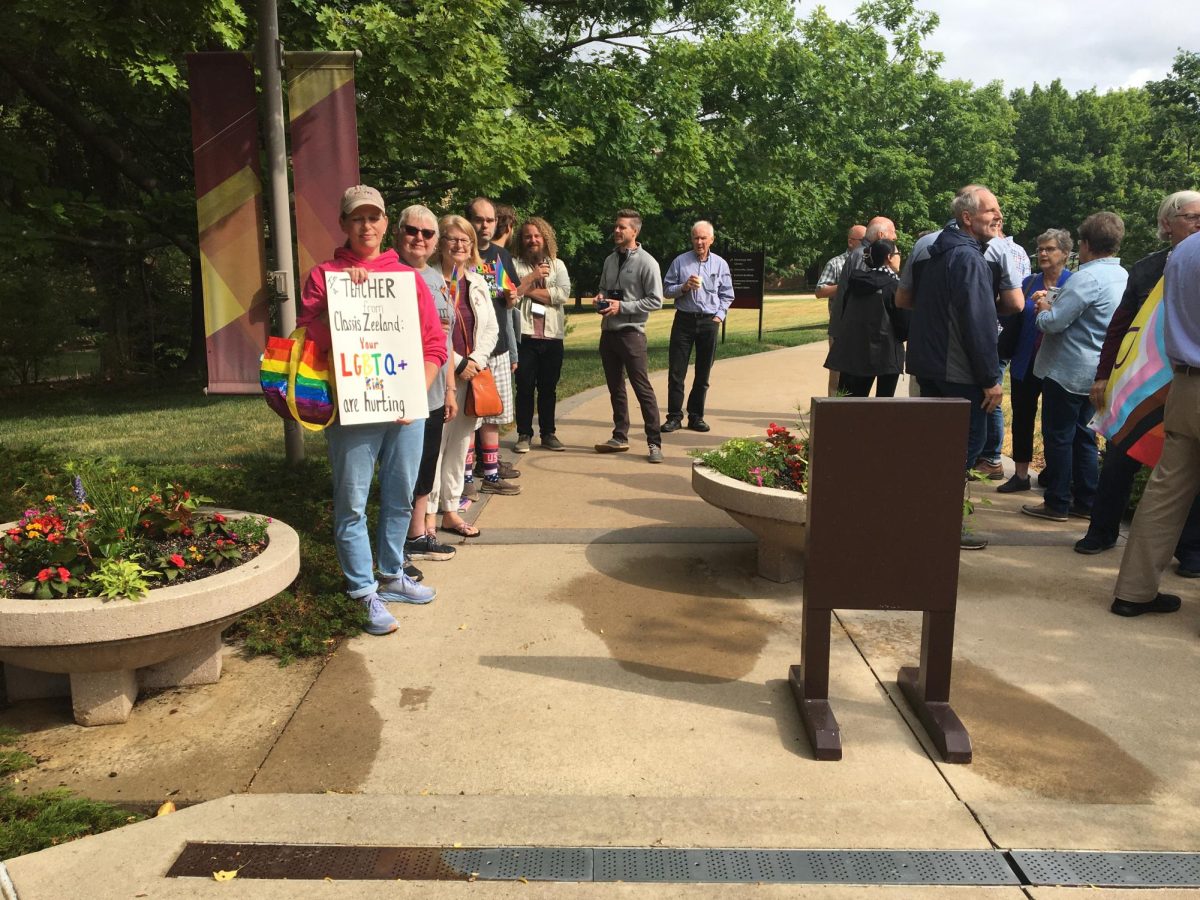Since taking office on Jan. 20, President Donald Trump has signed over 45 executive orders, many of them pertaining to immigration and trade between the U.S. and other countries.
Trump’s executive orders include multiple orders addressing illegal immigration, increasing deportation efforts, and authorizing use of military personnel in these efforts; as well as an order revoking birthright citizenship; and an order suspending the entry of refugees through the United States Refugee Admission Program (USRAP). Amid this flood of orders, some within Calvin’s international community have expressed a sense of uncertainty about their own immigration status.
Jonathan Umran, a student coordinator for the Center for Intercultural Student Development (CISD), said the “uncertainty is a concern” for many students who are wondering whether future orders will affect their visa status. For others, “what concerns them more [than deportation] is the way that people have been emboldened to be discriminatory toward them,” said Umran.
Executive orders — which allow a president to directly manage the federal government — do not need the approval of Congress, and in most cases, only a current president can overturn them, according to the American Bar Association. However, Congress can pass legislation that would limit the president’s ability to carry out an order.
Executive orders can also be challenged in court. Trump’s executive order ending birthright citizenship has already been challenged – and temporarily blocked – on the grounds that it is unconstitutional.
According to Brent Wilkinson, Calvin’s director of International Admissions and Immigration (IAI), no restrictions have been placed on international students as of Saturday, February 1. During the previous Trump administration, “international students were in general not targeted by executive orders;” most visa problems were due to COVID-related embassy and consulate closures, said Wilkinson.
However, the sheer volume of executive orders – as well as how they are being enforced – have created anxiety for some international students as well as others who were born outside the U.S. “The hate that people have faced and some of the language that people have faced since the outcome of the election has already had many people in here [the CISD office] in tears, just not knowing what to do with it,” said Umran.
Another concern is detainment or deportation by U.S. Immigration and Customs Enforcement (ICE). Amid the push to increase deportation of undocumented immigrants, U.S. citizens and other legal residents have been questioned or detained by federal law enforcement. Because of this, Umran said that the CISD, which works with both international students and BIPOC students, has been encouraging many students to carry a copy of their passport at all times.
In a Jan. 31 email to faculty and staff, President Greg Elzinga referred to the chance of encountering U.S. government or law enforcement officials — such as ICE — on campus as being an “unlikely event.” However, in the event that such an event were to occur, Elzinga directed that faculty and staff should “notify Human Resources and your Vice President or Dean and politely request that the individual wait for an authorized representative of the University.”
Amid these stresses and uncertainties, Umran encouraged the larger Calvin community to “support” communities that have been targeted by the Trump administration and to “be intentional about not staying in comfortable bubbles in these next few years.”
For some, this has already been their experience at Calvin. Fernando Santos, a professor of computer science, arrived in the U.S. from Brazil a year and a half ago. Amid the stress of recent political events and uncertainty, “Calvin has really been a haven of welcomeness and hospitality,” Santos told Chimes in an email.
Students with concerns can go to the CISD for support or to Calvin’s IAI office for visa-related questions. “Our door is always open for students to come by and ask questions, and we also schedule information sessions for students any time a significant change occurs,” said Wilkinson.






